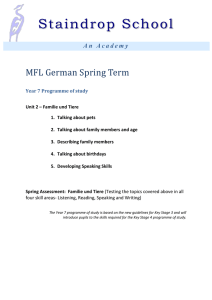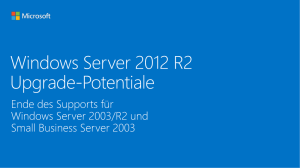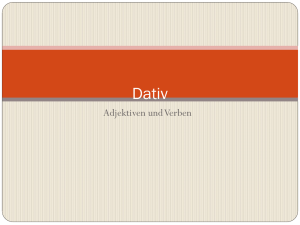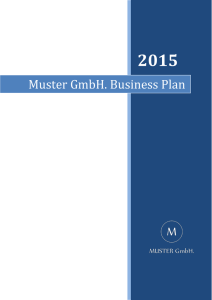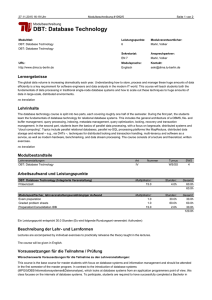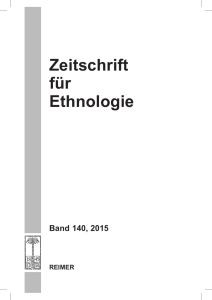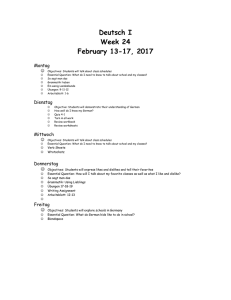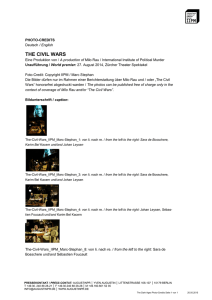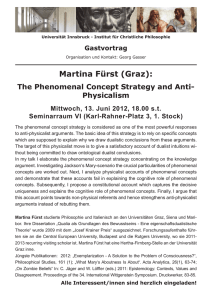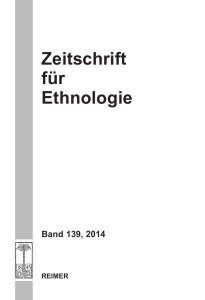germ10201 - Heartland Community College
Werbung
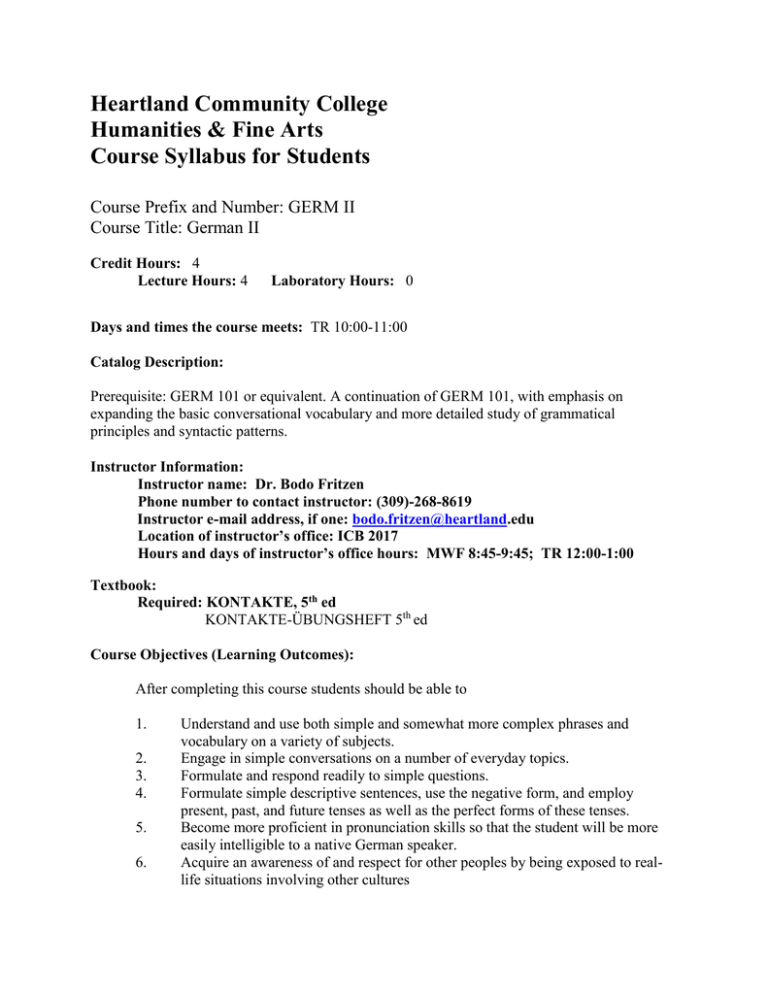
Heartland Community College Humanities & Fine Arts Course Syllabus for Students Course Prefix and Number: GERM II Course Title: German II Credit Hours: 4 Lecture Hours: 4 Laboratory Hours: 0 Days and times the course meets: TR 10:00-11:00 Catalog Description: Prerequisite: GERM 101 or equivalent. A continuation of GERM 101, with emphasis on expanding the basic conversational vocabulary and more detailed study of grammatical principles and syntactic patterns. Instructor Information: Instructor name: Dr. Bodo Fritzen Phone number to contact instructor: (309)-268-8619 Instructor e-mail address, if one: [email protected] Location of instructor’s office: ICB 2017 Hours and days of instructor’s office hours: MWF 8:45-9:45; TR 12:00-1:00 Textbook: Required: KONTAKTE, 5th ed KONTAKTE-ÜBUNGSHEFT 5th ed Course Objectives (Learning Outcomes): After completing this course students should be able to 1. 2. 3. 4. 5. 6. Understand and use both simple and somewhat more complex phrases and vocabulary on a variety of subjects. Engage in simple conversations on a number of everyday topics. Formulate and respond readily to simple questions. Formulate simple descriptive sentences, use the negative form, and employ present, past, and future tenses as well as the perfect forms of these tenses. Become more proficient in pronunciation skills so that the student will be more easily intelligible to a native German speaker. Acquire an awareness of and respect for other peoples by being exposed to reallife situations involving other cultures Course/Lab Outlines: 1. Kontext und Funktionen talking about your day-to-day life as a student enjoying vacations celebrating birthdays, holidays, and social get-togethers using informal language forms Vokabular activities on and off campus additional vocabulary items from the Dialoge, Geschichten, and Lesestücke in the chapter Dialoge Duzen wir uns! Eine Verabaredung für eine Party Den Führerschein machen Texte Theoretische Führerscheinprüfung Anzeigen Geschichten und Nacherzählungen Markus braucht eine Wohnung Thomas hat Schwierigkeiten Lesestücke Ein Tag für eine Studentin in Deutschland Skiferien Kultur German universities and Hochschulen dating getting a driver's license car inspection services of the student union finding an apartment in a university town government support for students fast food in Germany Grammatik forms: du- and ihr-forms of all verb types du-forms of present, future, simple past, present perfect, and würde-forms informal commands informal possessive adjectives: dein and euer vs. Ihr informal personal pronouns; du, dich; ihr, euch informal reflexive pronouns: dich, euch 2. Kontext und Funktionen sustaining speech narrating in writing with attention to simple style discussing for or to whom you do, say, or write things discussing gifts and gift-giving traditions sending a message Vokabular verbs of giving, saying, sending, and showing things given, said, sent, and shown and their receivers vocabular from the Dialoge, Geschichten, amd Lesestücke Dialoge Was hast du Thomas gekauft? Ich soll dir ausrichten, daß... Connie erzählt ihrer Freundin über Ali. Texte Telefonanrufe Ruf doch mal an! Postsparbuch Bremen Geschichten und Nacherzählungen Was kaufen wir den Eltern und den Verwandten? Familie Krüger zieht nach Bremen Lesestück Geschenke Kultur IDs in Germany flowers and flower shops in Germany preparing for Christmas when to make phone calls guest workers in Germany what Germans do and give on holidays moving in Germany the German post office and its services Grammatik forms: the dative case: the definite article and der-words the indefinite article and ein-words personal and reflexive pronouns W-words and weak nouns the accusative case: review word order: ordering direct and indirect objects negation with indirect objects inverted word order for emphasis and stylistic variation combining sentences omitting common elements in sequential clauses coordinate word order after und, aber, oder, nicht, sondern denn subordinate word order after daß, wenn, als, ob, W-Wörter 3. Kontext und Funktionen talking about your physical well-being turning down a request or invitation politely expressing discomfort, pain, regret, and dissatisfaction expressing reactions expressing how to take care of yourself naming destinations and locations in and outside of a city describing your apartment or house Vokabular parts of the body and verbs related to personal hygiene nouns of location and destination: continents, countries, and cities points within a city, town, or village rooms of a house and points within rooms (furniture) eating and drinking implements basic modes of transportation vocabulary from the Dialoge, Geschichten, and Lesestücke Dialoge Wie kommen wir zum Hotel? Fahren Sie nach Aaschaffenburg? Geschichten und Nacherzählungen Ein guter Kompromiß fürs Wochenende Ankunft im Hotel Wiedershen in Frankfurt Lesestücke Wie sieht eine deutsche Stadt aus? Wohnen in Deutschland In einem Haus Kultur the BRD as part of the European Community castle and fortresses the retail business in the Federal Republic the cathedral in Köln what rules tenants should observe a house and its rooms in the Federal republic privacy in a house or an apartment looking for an apartment in a newspaper table manners Grammatik forms: verbs with dative objects dative of ownership: with clothing and parts of the body; with original works verbs of hygiene with dative rerlexive pronouns the verb tun + dative idioms expressing reactions with the dative, an adjective, and sein dative prepositions: aus, außer, bei, mit, nach, seit, von, zu dative postpositionL gegenüber word order: with gehen, sehen, höen, lassen + infinitive with prepositional phrases negation of prepositional phrases 4. Kontext und Funktionen discussing the generation gap working out a problem with a superior locating things and putting them in places getting things ready before guests arrive asking for and giving directions furnishing a room or apartment Vokabular review of vocabulary in Chapter 10 vocabulary items from the Dialoge and Geschichten key verbs: setzen/sitzen, legen/liegen, hängen/hängen, stellen/stehen objects with prominent horizontal or vertical dimensions kitchen-and tableware crossing streets, bridges, mountains, and borders Dialoge Statt zu arbeiten, telefonieren Sie ständig! Sie müssen über die Brücke genhen! In München Wann ist die Abfahrt? Texte Welche Stadt liegt an welchem Fluß, See oder Meer? Aus einer Broschüre zum Goethehaus Barockfest Geschichten und Nacherzählungen Kinder, Kinder! Die neue Wohnung Lesestück Wüzburg-Bischofsstadt, Universitätsstadt, Weinstadt Kultur special problems in German schools the summer break for students smoking in the German-speaking countries der Bodensee (Lake Constance) closing days for sighseeing and restaurants the cities of Frankfurt, Tübingen, and Würzburg Grammatik forms: two-way prepositions: an, auf, hinter, vor, neben, zwischen, in über, unter da- and wo-compounds infinitive phrases infinitive constructions with um...zu, ohne...zu, (an)statt...zu word order: infinitive phrases and constructions prepositional phrases: time, manner, place 5. Kontext und Funktionen communicating emotions identifying and commenting on familial and romantic relationships discussing what you think about events and things discussing errors of several types being in a hurry needing to relax getting gracefully through the following basic survial situations: arriving in the airport exchanging currency buying train tickets storing baggage traveling by train using a pay phone visiting and staying with a German family Vokabular vocabulary items from the Dialoge and Geschichten idioms: Verbs and adjectives with prepositions reflexive verbs: accusative and dative reflexive verbs with prepositions Dialoge Herzlich willkommen! Wir müssen Geld umtauschen Was kosten die Fahrkarten, bitte? Eines Tages... Habt ihr euch ein Visum besorgt? Texte Ankunft im Flughafen Im Speisewagen Information für Reisende Geschichten und Nacherzählungen In der Schlange am Bahnschalter Bei der Gepäckaufbewagrung Wenn man mit dem Zug fährt In der Telefonzelle Zu Besuch bei den Verwandten Lesestück Ankunft im Flughafen dealing with more survival situation: asking for and giving directions in a city getting information about studying in Germany shopping for food and ordering in a restaurant meeting and conversing with a stranger while traveling going to a doctor when sick crossing the border into East Berlin Vokabular vocabulary related to colds, flu, allergies, and minor ailments vocabulary items from the Dialoge, Geschichten, and Lesestücke Dialoge Können Sie mir den Weg sagen? Könnten Sie uns etwas empfehlen? Richtung Berlin Was fehlt Ihnen denn? Geschichte und Nacherzählung Jeff informiert sich Lesestück Ein Stück Geschichte: Der Neunte November 1989 Kultur student exchange programas health insurance in the German-speaking countries Berlin, 9 November 1989 Grammatik forms: review of modal verbs: present and past tenses general subjunctive for modalas verbs and wissen (present and past) modal verbs and compound tenses (double infinitives): present and past perfect future with werden adjectives and adverbs: positive degree: (eben)so/nicht so + positive degree + wie comparative degree: with noch, alas, and immer regular/monosyllabic/irregular adjectives and adverbs superlative degree: with am adjectives and adverbs ending in -d, -t, and s-sounds false superlatives: höchst/äußerst + positive degree secondary case endings: after der- and ein-words all degrees strings of adjectives word order: modals in subordinate clauses 6. Kontext und Funktionen reading and writing in the simple past discussing unreal conditions retelling what someone else has said changing perspective: passive Vokabular vocabulary items from the reading selections and the Lesestücke Lesestücke und Biographie „Das Brot“ von Wolfgang Borchert Berlin Anna Seghers Die Gründung der DDR Wolf Biermann Auszug aus „Schuldig gerboren“ von Peter Sichrovsky Die DDR-Schriftstellerin Gabriele Eckart Kultur literature: postwar experiences (Woofgang Borchert: Das Brot) history: Berlin the founding of the German Democratic Republic Biographies: Anna Seghers and Wolf Biermann Germans and Germany today: the different generations and Germany's past Peter Sichrovsky: Susanne, 42, die Hoffnungsvolle Gabariele Eckart: East and West Germany Grammatik forms: simple past: all verb types passive voice: all tenses, and with modal verbs expressing the agent with von, mit, and durch general subjunctive: with würde-construction (review); all verb types special subjunctive: third person forms for all verb types Methods of Instruction: (Optional) Course Policies: (The following are optional) Method of Evaluation (Tests/Exams, Grading System): Course grades will be a compilation of scores on in- and out-of-class exercises, quizzes, and a final exam. Final grades will be determined according to the following scale: 92 to 100% = A 83 to 91% = B 74 to 82% = C 65 to 73% = D Below 65% = F Grading Policy: Participation (or Attendance): required Class Participation: required Incompletes: none Extra Credit: none Make-up of tests and assignments:none Deadlines: must be met Required Writing and Reading: Short compositions (paragraph length), letters, descriptions, and reports, in German, usually based on reading selections. Reading materials for this course are of four types: 1. Dialoge, which contextualize target grammar and vocabulary in typical cultural settings. Students will also read these aloud to practice pronunciation, sentence stress, and sentence melody. 2. Geschichten and Nacherzählung, or situational stories and dialogs for intensive reading. These stories are written at a level of difficulty slightly above the abilities of students to create with the language, but class activities should lead the students to the point where they can retell them, thus encouraging them to experiment with creating meaning in German. 3. Lesestücke, selections for extensive reading to develop general comprehension skills. 4. Authentic texts and graphic items from German-speaking countries. Students will work with these items interactively (e.g., filling out a form, choosing from a schedule, ordering merchandise, etc.) Student Conduct: Academic Integrity and Plagiarism Academic Integrity Academic integrity is a fundamental principle of collegial life at Heartland Community College and is essential to the credibility of the College’s educational programs. Moreover, because grading may be competitive, students who misrepresent their academic work violate the right of their fellow students. The College, therefore, views any act of academic dishonest as a serious offense requiring disciplinary measures, including course failure, suspension, and even expulsion from the College. In addition, an act of academic dishonesty may have unforeseen effects far beyond any officially imposed penalties. Violations of academic integrity include, but are not limited to cheating, aiding or suborning cheating or other acts of academic dishonesty, plagiarism, misrepresentation of data, falsification of academic records or documents and unauthorized access to computerized academic or administrative records or systems. Definitions of these violations may be found in the college catalog. Plagiarism Plagiarism is the presenting of others’ ideas as if they were your own. When you write a paper, create a project, do a presentation or create anything original, it is assumed that all the work, except for that which is attributed to another author or creator, is your own. Plagiarism is considered a serious academic offense and may take the following forms: 1 Copying word-for-word from another source and not giving that source credit. 2 Paraphrasing the work of another and not giving that source credit. 3 Adopting a particularly apt phrase as your own. 4 Using an image or a copy of an image without crediting its source. 5 Paraphrasing someone else’s line of thinking in the development of a topic as if it were your own. 6 Receiving excessive help from a friend or elsewhere, or using another project as if it were your own. Note that word-for-word copying is not the only form of plagiarism. The penalties for plagiarism may be severe, ranging from failure on the particular piece of work, failure in the course or expulsion from school in extreme cases. [Adapted from the Modem Language Association’s MLA Handbook for Writers of Research Papers. New York: MLA, 1995: 26] Support Services: Heartland Library Information The Library, located in the Students Commons Buildings at the Raab Road campus, provides Heartland students with a full range of resources including books, online journal databases, videos, newspapers, periodicals, reserves, and interlibrary loan. Librarians are available to assist in locating information. For more information please call the Library (309) 268-8200 or (309) 268-8292 Tutoring Center Heartland Community College offers tutoring in various forms at no cost to Heartland students at the Academic Support Center (ASC) in Normal and at the Pontiac and Lincoln Centers. Tutors are available at convenient times throughout the week. Study groups, group tutoring facilitated by a specially-trained tutor, are also available by request. For more information about services available at each location, please call the ASC in Normal (309) 268-8231; the Pontiac Center (815) 842-6777; the Lincoln Center (217) 735-1731. Testing Center The Testing Center provides a quiet environment for students to complete make-up exams, online exams, and exams for students with special accommodations. Students may be able to complete exams in the Testing Center if arrangements are made with their instructor. For more information, contact the Testing Center at (309) 268-8231. Course Calendar: Jan. 17 “ 19 “ 24 “ 26 “ 31 Introduction Kapitel 6 “ “ “ Feb. “ “ “ “ “ “ “ Mar. “ “ “ “ “ “ Apr. “ “ “ “ “ “ “ May “ “ “ 2 7 9 14 16 21 23 28 2 7 9 21 23 28 30 4 6 11 13 18 20 25 27 2 4 9 11 Kapitel 7 “ “ “ “ Kapitel 8 “ “ “ “ Kapitel 9 “ “ “ “ Kapitel 10 “ “ “ Kapitel 11 “ “ “ Kapitel 12 “ “ “
